The ICDS Fellows Program application is due at 11:59 pm on Monday, Jan 02, 2023. Read more about the Fellows Program here: https://wp.wwu.edu/disabilitycollaborative/fellows/
Search Results for: 2023
Two Year-End Announcements from the Institute For Critical Disability Studies
The ICDS is announcing two exciting programs to wrap up 2022.
First, visit this page to get a preview of the Critical Disability Studies minor, which is set to begin in Fall 2023. Check out a video about the program and give us some feedback.
Second, visit this page to find out about our first annual ICDS Fellows program. We are seeking applications from faculty, staff, and community members until January 2nd, 2023.
As always, reach out to Andrew Lucchesi and G McGrew, the ICDS co-directors, at icds@wwu.edu
Join the Disability Studies and Action Collaborative mailing list for newsletters and events!
New ICDS Fellows Program launching!
The WWU Institute for Critical Disability Studies is excited to announce the launch of a new Fellows Program to support faculty, staff, and community members with one-year fellowships to develop programs and carry out projects related to disability scholarship and advocacy.
A cohort of at least five Fellows will meet with peer Fellows and Program Mentors throughout the calendar year and learn from each other’s skills and interests. The fellowship award is $3,000 for the one-year duration of the program.
The application deadline for the 2023-4 Fellows cohort is 11:59 pm on Monday, January 02, 2023.
From the Archives – Introducing the Minor in Critical Disability Studies
This page was originally created in Fall 2022 to introduce our new Minor in Critical Disability Studies to the Disability Studies and Action Collaborative and newly-formed Institute for Critical Disability Studies community. People interested in learning more about the program could read or watch the video and provide feedback to the co-directors in advance of the Minor going live.
The long-awaited Minor was approved soon thereafter, and the codes to declare were activated in April 2023, so we were finally set to formally open the program for the Fall 2023 academic year. We found that many students were quite excited to be able to declare the Minor, so much so that we actually had four students declare the minor early, in Spring and Summer 2023. By the end of Fall 2024, 25 students had declared, from First-year to Senior.
The following contents for the page are an archived description of the Minor as we were planning it in 2022. Our program has expanded significantly since then. If you’d like to read our most up-to-date description and information on the minor, please visit our current Minors page here.
Introducing the Minor in Critical Disability Studies (introductory video as it was in development)
The Institute for Critical Disability Studies proposed a new minor to launch in Fall 2023. We created this video so that you could learn more about it before it was launched.
After visitors finished the video, they were invited to give ICDS feedback using the form at the bottom of the page.
Download the PowerPoint slides of this presentation, which includes the script, through this link.
If you want to find out more about the minor or the Institute for Critical Disability Studies, contact icds@wwu.edu
‘Documenting Grace’ dance film festival kick-off and films sponsored by ICDS
Invitation to Dance on November 13th
Join us for a kick-off event for Kuntz & Co’s new film festival series, “Documenting Grace”. On Sunday, November 13th, ICDS will be sponsoring their screening of Invitation to Dance, a documentary film by Simi Linton, and a 20-min pre-screening discussion. Proceeds from the screening will go toward Dance for All Bodies.
- When: Sunday, November 13th, 6:00 pm
- Location: Firehouse Arts and Events Center, 1314 Harris Avenue, Fairhaven
- Tickets: $12 general; $6 discounted student (promo code: ‘wheels’)
- Download a calendar file for the screening here.
The film will be shown with open captions and audio description to provide access for low vision/blind audience members. Questions or for disability accommodations contact Pam at 360-510-4711 or kuntzpam@gmail.com
More events to come!
Stay tuned for information on our next ICDS event accompanying Pam’s “Documenting Grace” series, co-sponsored with Northwest Parkinson’s Foundation. Sunday, April 16, 2023 at 4:00 pm.
People – Institute for Critical Disability Studies
Institute for Critical Disability Studies Co-Directors
The ICDS is currently headed by two half-time co-directors. Andrew (English), and GIM (College of Science and Engineering) are faculty at WWU. You can contact them at ICDS@wwu.edu.
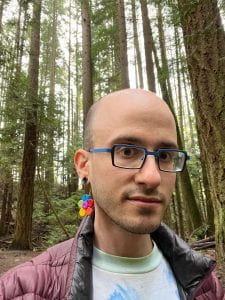
Andrew Lucchesi
he/they
Associate Professor, English
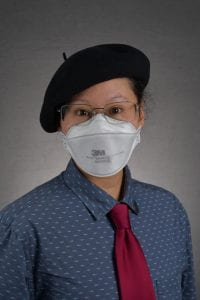
GIM (G McGrew)
he/they
Senior Instructor, College of Science & Engineering
Find office hours for Co-directors, Graduate Assistants, and Faculty teaching DISA courses here
Affiliated Members
The diverse faculty, staff, students, and community members who contribute to the critical disability studies program represent colleges and departments across Western Washington University as well as collaborators outside of Western.
WWU Faculty and Staff

Elizabeth Boland
Professor, Health and Community Studies

Kathleen Brian
Senior Instructor, Global Humanities and Religions

Kristen Chmielewski
she/her
Faculty, Recreation Management & Leadership
Teaches: DISA 330 Critical Disability Studies, a Core course for the CDS Minor

Kat DeNicola
she/her
Access Manager, Disability Access Center

Yasmine Elglaly
Assistant Professor, Computer Science
Teaches: Critical Disability Studies Minor elective: Accessible Computing

David Engebretson
he/him
Digital Technologies Accessibility Coordinator

Kyann Flint
Instructor, Critical Disability Studies
Teaches: DISA 330 Critical Disability Studies, a Core course for the CDS Minor

Lindsay Foreman-Murray
Assistant Professor, Educational Leadership and Inclusive Teaching
Teaches: Cross-listed DISA 350 Topics in Critical Disability Studies
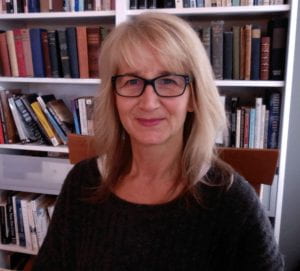
Allison Giffen
she/her
Faculty, Women, Gender, and Sexuality Studies
Teaches: Electives for Critical Disability Studies Minor
I am a professor in the English department and specialize in 19th-century American literature and culture with an emphasis in disability studies and critical childhood studies. My current research in explores the intersections of race, disability, and childhood in late 19th-century literature.
Note: Allison was our Interim Co-director in Spring 2023


Pam Kuntz
she/her
Dance Program Advisor / Senior Instructor
Teaches: DISA 350, a core Topics course in the Critical Disability Studies Minor

Ceci Lopez
Assistant Professor of Law, Fairhaven

Scot Nichols
Fairhaven College


Tara Perry
she/her
Professor, Department of Communication Studies, faculty affiliate to Institute for Critical Disability Studies and Women Gender and Sexuality Studies

Candice Styer
Instructor of Special Education, Woodring

Anika Tilland-Stafford, PhD
they/them
Senior Instructor, Women, Gender, and Sexuality Studies & Honors College
Office: Miller Hall 415D

Adrian J. Villicana
Assistant Professor, Social Psychology, Fairhaven
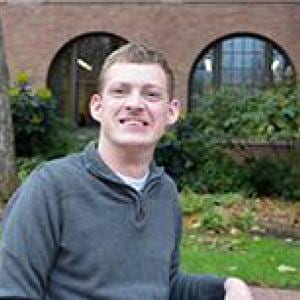
Daman Wandke
Instructor, Educational Leadership and Inclusive Teaching
Teaches: DISA 330 Critical Disability Studies and DISA 350 Topics in Critical Disability Studies, Core courses for the CDS Minor; Electives for the CDS Minor
Contact: wandked@wwu.edu
Collaborators and Community Members

Pau Abustan
||All Pronouns||
Formerly Visiting Assistant Professor, Women Gender, and Sexuality Studies
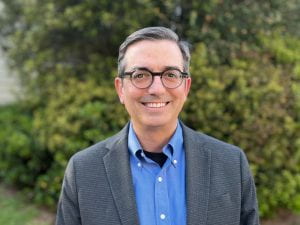
Graduate Teaching Assistants
Graduate TAs assist the operations of the Institute in many invaluable ways, including event logistics and planning, course and curriculum feedback, office hours, and student mentorship and leadership organizing.

Lorraine Floyd
Graduate Student, Rehabilitation Counseling
ICDS GTA Fall 2023 – present

Fred Engelfried
Graduate Student, Environmental Studies / Urban Planning
ICDS GTA Fall 2024 – present

Sarah Lucas-Page
she/her
Graduate Student, Music and Performing Arts
ICDS GTA Fall 2024 – present
Sarah Lucas-Page is an award-winning composer and clarinetist who has dedicated her life to the art of music and activism by continually pushing the boundaries of her creative expression. She has been creating and performing new clarinet music to help fight injustice and bring awareness to issues within the LGBTQIA+ community, Fat Body Politics, Women, and Neurodivergent people. Lucas-Page is pursuing her master’s degree in music composition at Western Washington University, studying with Dr. Charles Halka, Dr. Robert Hamilton, and Dr. Rachel Yoder. She is a Graduate Assistant for the Institute for Critical Disability Studies department and the music department.
Our Previous ICDS Graduate Assistants
The ICDS is grateful for the work that our Graduate Assistants have done to help the Institute meet our growing and changing needs, from helping to plan and manage events, to TAing course in our Minor. We would like to acknowledge them here:

Eden Chapman
Graduate Student, Masters in Teaching
ICDS GTA Fall 2023 – Summer 2024

Spike Osadchuk
Graduate Student, Anthropology
ICDS GTA Fall 2022 – Winter 2024

Hidemi Mitani Shen
she/her
Graduate Student, Computer Science
ICDS GTA Fall 2022 – Spring 2023
Find office hours for Co-directors, Graduate Assistants, and Faculty teaching DISA courses here
ICDS Committees
For questions about joining Institute for Critical Disability Studies standing committees, ad-hoc committees, and task forces, please email icds@wwu.edu.
Standing Committees
- Curriculum Committee*
- DISA coursework approvals and interdisciplinary minor in critical disability studies
- Programming (Events) Committee*
- ICDS and community events, workshops, lectures, and other projects
- Development Committee*
- grants and fundraising
- Outreach Committee*
- publicity & collaborative relationship-building
- Scholarships & Awards Committee*
- ICDS scholarships and Scholars Week student recognitions
Advisory Councils
- Student Advisory Council*
- a student-organized body of undergraduate and graduate students providing recommendations to the ICDS
- Leadership positions are compensated: learn more at student employment
- ICDS Advisory Council* (formerly Interim Advisory Council)
- an advisory council to the ICDS co-directors consisting of internal and external members
General Membership & Community
- Disability Studies and Action Collaborative Community* (formerly DS Steering Committee)
- The DSAC Community is open membership: Use this quick-join link to join our Outlook group, or fill out our mailing list form.
- Students, Faculty, Staff, Administrators, Alumni, and Community Members from all backgrounds and abilities are welcome!
Ad-Hoc Committees and Task Forces
- DS Minor Task Force
- Objective: Complete submission of disability studies minor paperwork and propose additional core classes for the minor
- COMPLETED!
- ICDS ADEI Statement Task Force*
- Objective: Collaboratively finish the Institute’s statement on accessibility, diversity, equity, inclusion, and belonging
* = this committee is looking for additional members
New ICDS Graduate Teaching Assistantships posted!
The Institute for Critical Disability Studies is hiring for two new graduate teaching assistant (GTA) positions for the 2022-2023 academic year! You can learn more and review the GTA position information and application instructions here.
Working as a Graduate Teaching Assistant for the Institute for Critical Disability Studies
Call for Graduate Teaching Assistantships
The Institute for Critical Disability Studies (ICDS) is hiring graduate teaching assistants (GTAs) for the 2024-2025 academic year to support the Institute and its mission to promote disability studies coursework, host events that bridge he academic-community divide, and to support disability culture, awareness, and advocacy at Western Washington University.
We expect to hire two to three graduate students to serve in full-time salaried, half-time salaried, and/or hourly nonsalaried graduate teaching assistant (GTA) positions for individual Fall, Winter, and/or Spring quarters of 2024/25, and/or for the full 2024-2025 academic year (Fall, Winter, and Spring quarter).
The full details and application forms for this position can also be downloaded as a word document.
Application Deadline & Hiring Timeline
Application deadline for all 2024-25 ICDS GTA positions: 11:59 pm on Sunday, August 25, 2024.
Hiring decisions will be announced on or before Monday September 02, 2024. Fall positions start on Monday, September 16, 2024.
Position Overview
ICDS GTAs have many responsibilities. They will directly support ICDS students, critical disability studies minors, and the ICDS student community by holding regular office hours and by supporting the activities of the ICDS Student Advisory Council (SAC).
Specific additional responsibilities will be decided upon mutual discussion and agreement between individual GTAs and Institute Co-Directors in the areas of academic support, program support, and Institute support (see What are the GTA job responsibilities? section below). Example additional GTA responsibilities may include assisting with organizing events, web and social media work, and otherwise assisting with academic programming in Critical Disability Studies, including moderating discussions on disability-related topics and/or grading coursework within the Critical Disability Studies minor.
Position Details
Required qualifications
- GTAs are expected to keep timely communication with ICDS co-directors and staff during business hours, including email correspondence, responding to calendar invitations for scheduled meetings, and taking initiative to reschedule meetings that are missed.
- GTAs should have experience in writing in genres including formal emails, event announcements, and profile articles. Clear prompts and coaching will be provided.
- GTAs must responsibly handle sensitive information, such as when working with confidential student or personal information and coursework.
- GTAs must stay current on required WWU ADEI trainings and abide by ICDS policies on supporting accessibility, diversity, equity, and inclusion (ADEI).
Preferred qualifications
- Knowledge and experience in disability studies, advocacy, accessibility, and/or universal design is highly preferred, but not required.
- Proficiency in writing in diverse genres, including blogging, social media, email, meeting minutes, and summaries of events is preferred, but not required.
- Experience in student or community leadership, for example in a student club or community organization is preferred, but not required.
What are the GTA job responsibilities?
ICDS GTAs have many responsibilities. They will directly support ICDS students, critical disability studies minors, and the ICDS student community by holding regular office hours and by supporting the activities of the ICDS Student Advisory Council (SAC).
GTA Responsibilities will also include a subset of the following in these three areas of support need, which will be determined with each GTA individually upon mutual discussion and agreement between GTA and Institute Co-Directors:
- Academic support
- Work with faculty teaching disability studies courses through grading, and/or moderating discussions
- Work with faculty to design curriculum on disability-related topics
- Holding office hours for students in disability studies courses
- Program support
- Designing and/or delivering professional development workshops
- Organizing speaker event logistics
- Organizing and facilitating the annual UnConference panels and workshops
- Mentoring UnConference student workers
- Coordinating event logistics such as food, room setup, and printing materials
- Co-hosting and representing ICDS at outreach and informational tabling events
- Institute support
- Keeping records and reporting to ICDS co-directors: this includes attending and taking notes on ICDS meetings
- Writing blog posts and newsletter articles about the ICDS programs
- Mentoring undergraduate student workers
- Serving on standing committees
- Serving in a mentor and advisory role to support the operations of the ICDS Student Advisory Council (SAC)
- Interfacing with various offices and student groups
Who can apply to be an ICDS GTA?
This position is open to all WWU graduate students regardless of disability status or field of study. We are particularly interested in welcoming applicants with diverse and intersecting identities, particularly disabled, neurodiverse, chronically ill, BIPOC, queer, and gender non-conforming individuals.
Please note: If your graduate program is not state-supported (i.e. is offered through OCE, office of continuing education), you cannot received salaried GTA support and must apply for an hourly nonsalaried position.
Hours, pay, and benefits
The GTA position is available as full-time salaried, half-time salaried, and hourly nonsalaried. The position requires approximately 20 hours per week for full-time appointments, 10 hours per week for half-time, and between 5-9 hours per week for hourly positions.
Salaried GTAs will receive the standard pay and health insurance benefits of an academic graduate teaching assistant. Full-time and half-time salaried positions include full graduate tuition waivers. Compensation for hourly nonsalaried GTA positions will be consistent with the current wage schedule for graduate assistants.
GTAs will report directly to the ICDS Co-Directors and administrative manager. Hourly GTA positions require timely reporting of hours through electronic time sheets maintained by the GTA and approved by the ICDS.
How to apply to be an ICDS GTA
To apply, submit your Resume/CV and the ICDS Graduate Assistant Application attached to the end of the Job Description word document; it includes basic applicant info, interest survey, and space for an approx. 1 page cover letter. Send documents to icds@wwu.edu and cc both mcgrewg2@wwu.edu and lucchea@wwu.edu “ICDS Graduate Assistant Application” and your last name.
The application and cover letter should explain the following information:
- whether you are applying for the full-time (20 hours/wk salaried), half time (10 hours/wk salaried), or hourly nonsalaried GTA position (5 – 9 hours/wk)
- what quarter(s) you are applying for: Full Academic year, Fall Quarter, Winter Quarter, and/or Spring Quarter
- your home graduate department and your year in the program
- whether there is any flexibility or uncertainty in your need for employment with the ICDS
- describe your interest in the position and the personal experience that qualifies you for the position, including how you meet the job’s required and preferred qualifications
- identify which subsets of the proposed job responsibilities you are most excited to take on under Academic, Programming, and Institute Support (see What are the GTA Job Responsibilities? under Position Details)
Applications are due 11:59 pm Sunday, August 25th.
Applications have closed
FAQ
Frequently asked questions about the ICDS Graduate Teaching Assistant positions
What is the difference between the full-time salaried, part-time salaried, and hourly nonsalaried appointments?
These appointments differ in salary, benefits, minimum enrollment to apply, and whether other campus jobs can be accepted simultaneously. Paychecks are disbursed biweekly (every 2 weeks).
- full-time salaried:
- 20 hours/week ICDS Graduate Assistant Work
- salary: $5850 per quarter paid in 6 installments
- tuition waiver: Full (waiver does not cover student fees: full table of cost here)
- benefits include health insurance
- enrollment: must be enrolled full-time, or at least 8 credits per quarter of employment in a state-supported WWU graduate program
- Other campus jobs: No other campus jobs can be accepted
- generally, a graduate student is limited to 6 quarters of salaried GTA work through the WWU Graduate School.
- half-time salaried:
- 10 hours/week ICDS Grad Assistant Work
- salary: $2925 per quarter, in 6 installments
- tuition waiver: Partial (full table of cost here)
- benefits include health insurance
- enrollment: must be enrolled full-time, or at least 8 credits per quarter of employment in a state-supported WWU graduate program
- Other campus jobs: can be accepted, up to 9 hrs/wk
- hourly nonsalaried:
- 5 – 9 hours/week ICDS Grad Assistant Work
- non-salaried hourly rate: consistent with the WWU wage schedule for graduate students
- Student must record hours worked and submit biweekly time sheets that are then approved by the ICDS.
- tuition waiver: None
- student covers health insurance
- enrollment: must be enrolled at least half-time, or 4 credits per quarter (graduate half-time)
- Any WWU graduate student can be paid hourly, including grad students in continuing education (OCE) graduate programs.
- Other campus jobs: can be accepted
Does a tuition waiver from a salaried graduate assistant position also cover fees?
No, the tuition waiver does not cover student fees: a full table of costs for 2023-2024 is linked here
Do I need to be enrolled as a full-time graduate student to work an ICDS GTA position?
For salaried (full-time and half-time) positions, you must be enrolled full-time, or 8 credits per quarter minimum, for each quarter you will be employed as a salaried grad assistant.
For non-salaried (hourly part-time) positions, you do not have to be enrolled full-time, but you do need to be enrolled at least half-time, or 4 credits per quarter minimum, for each quarter you will be employed as a grad assistant.
Archive
Previous years’ calls for GTAs.
DSAC Annual UnConference
UnConference 2024
Our Annual Fall UnConference is Saturday & Sunday, October 19 – 20, 2024
Applications have closed, but you can join us for our Friday, October 18 Reception and Keynote in AW 204, which is free and open to all. 4:30 reception, 5:30 keynote.
Disability Studies & Action Collaborative UnConference
Saturday October 19 – Sunday October 20, 2024
Tentative time: 10:00 – 5:00 pm
Academic Instructional Center West
Western Washington University, Bellingham Campus
About the UnConference
The Western Washington University Institute for Critical Disability Studies is excited to to be hosting our fourth annual Disability Studies and Action Collaborative (DSAC) UnConference in October 2024.
The event will span two days, and it will provide a venue for scholars, students, nonprofit workers, advocates, activists, artists, and community members to gather to discuss issues of disability, access, and equity. Our main focus will be local to the needs, concerns, and opportunities of Bellingham, WA and the surrounding Pacific Northwest region.
Who is the UnConference For?
Everyone is welcome at the UnConference. All that is required is that you have a personal interest in disability issues. We are not asking anyone to be a “disability expert,” but we believe a wide range of people can contribute to our conversations at the UnConference, regardless of whether you work with disability issues professionally, you study critical disability studies as a student or academic, or you have lived experiences of disability. Everyone has something to contribute.
This event is for everyone, regardless of your access needs. You are welcome to attend the UnConference in person on our Bellingham campus, or you may attend fully on Zoom. We will provide access supports to all attendees, including ASL interpretation, downloadable materials, and other accommodations participants request in the application form.
What happens at the UnConference?
Our UnConference is broken down into two days. Everyone is expected to attend both days of the event.
Day 1: The Workshops
Our first day focuses on a series of workshops. You work in a small group of people from different backgrounds to focus on a specific problem or opportunity related to disability. You have conversations about that topic, then identify an idea for solving the problem or seizing the opportunity. Every workshop group is different. You will be led by a facilitator who will guide the group through the process of deciding on an important topic and discovering a way to address it.
Past workshop topics include creating an online network for and by BIPOC trauma survivors, developing a research study about disabled students’ personal narratives, and designing templates for identifying access problems on school campuses.
Day 2: The Presentation Sessions
Our second day focuses on presentation sessions. Every UnConference participant will give a presentation of some kind. Some people might speak for five minutes as part of a roundtable on a topic of their choosing. Some may give longer, more formal presentations ranging from ten to fifteen minutes. The philosophy here is that everyone has a certain kind of expertise to share, whether that’s scholarly research or lived experience. Coaching will be available for those who want some support in developing their presentation.
What are the themes of the UnConference?
The UnConference is user-driven, so we will focus on whatever aspects of disability culture and access that you are interested in. Here are some example themes that we have explored in the past:
Activism and Advocacy
- Fair access to local community resources, networks, and spaces
- Advocacy models from local community organizations
- Current projects and unmet needs in disability activism
Community Building
- Perspectives on local disability culture, community building, and solidarity work
- Approaches to fighting disability stigma and fostering disability pride
Critical Disability Studies
- Disability Studies scholarship from a variety of critical approaches and academic fields
- Curriculum, program building, museum studies, and pedagogy informed by disability studies
Access and Equity
- Access and equity in educational settings
- Practices for barrier-free teaching and facilitation in higher education or other settings
- Universal design in physical or digital settings
Arts and Culture
- Disability and various creative arts, including dance, film, music, or visual arts
- Disability and artistic practice
2024 UnConference Application
The following information will be updated to reflect 2024 information soon:
- UnConference 2024 Program
- 2024 UnConference Program (public)
- 2024 UnConference Program for attendees (private page, password required)
- Browse Recent UnConference Programs:
- Local Information and Guides
- This page includes parking information, maps of the building and campus, and links to public transit information
- Participant-only links – Participants will be able to access these links by using the password sent in your application acceptance email
- Tentative Participants List (password required) – A list of Participants and their profiles
- Preliminary Program and Presentation Groupings (password required) – A tentative draft program of the UnConference and participant workshop, panel, and presentation groupings.
- Final Registration Form (password required) – This follow-up Participant Information Form will be used to save your final registration information for UnConference participants. Participants who have been Accepted to the Unconference should complete the Final Registration Form by Friday August 09 so that we can complete the event program.
Not attending this year, but still interested in helping us conduct the UnConference this and future years? Donate to our Special Events fund!
Visit the Call for Participation and Application page to find out more information about the conference or contact the organizers by emailing icds.unconference@wwu2.onmicrosoft.com and icds@wwu.edu.
The DSAC UnConference Archives
Institute for Critical Disability Studies Fellows Program
The WWU Institute for Critical Disability Studies supports faculty, staff, and community members with fellowships to develop programs and carry out projects related to disability scholarship and advocacy. Each year, we build a cohort of Fellows from differing professional and advocacy backgrounds. These fellows meet periodically throughout the calendar year to work together on their projects and learn from each other’s skills and interests.
Fellows are awarded $3,000 annually as part of their Fellowship. Fellows also have the opportunity to consult with one or more paid Project Mentors during their time in the Program.
ICDS Fellows Program Mission
The goal of the WWU ICDS Fellows Program is to create a venue where faculty, staff, and local community members can develop collaborative programs and initiatives related to disability scholarship and advocacy.
About the Fellows Program
What do Fellows do?
Our fellows take on a wide range of projects. Click or tap here to read about some project examples and learn about how the program is structured…
Some possible projects could include, but are not limited to:
- Developing a community-focused event or program
- Traveling to conduct research at an archive or to gather interviews from the community
- Building a social network among activists and artists within a community
- Creating an art project and sharing it with the public
- Conducting scholarly research and developing writing projects
While we would like you to have some ideas and general direction for what you’d like to do as a Fellow, you do not have to have a firm plan finalized in order to be accepted into the ICDS Fellows Program. Much of our early work in the Fellows Program can include planning and project development in consultation with Program Mentors and with the collective support of your peers in the Program.
Program Structure
The participation of Fellows in the Program is structured as follows:
- Each Fellow will submit an application in which they propose ideas and projects they are interested in working on for their fellowship period.
- Each Fellow receives $3,000 as part of their Fellowship. The awarded funds are distributed in two payments, half at the beginning and half at the conclusion of the Program.
- Fellows will meet with mentors based on their interests and project focus. Fellows will have regular opportunities to meet and check in with multiple mentors during their project development stage.
- Fellows meet as a full cohort regularly throughout the calendar year, including summer. These meetings will be hybrid, allowing both in-person and online participation.
Program Outcomes
Click or tap here to read more about the main outcomes for the fellows program…
This is a process-driven program, rather than a product-driven program. What this means is that you will be working toward a goal, but it is not vital that you finish the project within the year of the fellowship. Some projects may turn out to be too big and ambitious to finish in just one year. The Fellows Program is here to help you along the journey.
There are three main outcomes for the fellows program:
- At the beginning of the program, we will ask you to write a brief introduction of yourself and your tentative project ideas, which we will publish in our 2024 ICDS Annual Showcase newsletter. We will help you with any editorial support you should need.
- In October, we will invite you to give a 10-30 minute presentation about your work in progress as an ICDS Fellow at the annual Disability Studies and Action Collaborative UnConference. This year, the UnConference is happening Saturday and Sunday, October 19 and 20, 2024.
- By the end of the program, February 2025, we will ask you to write a short follow-up report on your work as a ICDS Fellow. This final report will be published in our annual 2025 ICDS Annual Showcase newsletter.
Getting Involved
Click or tap here to learn more about how to get involved in the ICDS Fellows Program as a Fellow or Project Mentor…
Fellows: How to apply to the ICDS Fellows Program
Applications for the 2024 Fellows Cohort will open on Friday, March 01, 2024 and will be due at 11:59 pm on Monday, April 01, 2024. Finalists will be contacted for interviews in the first half of April.
How to become a Project Mentor for the ICDS Fellows Program
Fellows partner with ICDS Fellows Mentors, who are faculty, staff, or community member mentors with expertise or experience in disability scholarship and/or advocacy. Mentors meet with Fellows to discuss their projects and offer support. Project Mentors are compensated for each mentorship session.
If you are interested in serving as part of our Mentor team, please contact icds@wwu.edu so that the ICDS co-directors can follow-up with your questions and set up a phone call or Zoom meeting.
Meet the Institute for Critical Disability Studies Fellows
Meet the 2024 Cohort

Chapi / Sharon Alfaro
she/her/ella
Click or tap to read more about Chapi…
Hello, my name is Sharon Alfaro but I go by Chapi. My pronouns are she/her/ella. I have worked in the mental health industry for four years up to very recently and it is my biggest passion of all. This is why I decided to make my project mental health and illness related. I currently work as a phlebotomist at labcorp and am a full time mom to three fur babies. I am more than excited for this fellowship and hope I can wow everyone. My goal is not just to wow everyone, but also educate my community and fellow Latinx members

Steve Hickenbottom
he/him
Click or tap to read more about Steve, an educator at Edmonds College…
I’m an educator from Seattle, Washington, working in transition skills for students with disabilities at Edmonds College. I grew up in the Ballard area of Seattle and received my bachelor’s degree in history from Western Washington University in 2008. After college I started working as a Special Education paraprofessional in the Seattle School district. Eventually I went back to school and received a Washington State Teaching Certificate in Special Education and taught in the Seattle and Shoreline School districts before moving to Edmonds College in 2023. In my role at Edmonds College I work to support students developing self advocacy and workplace readiness skills as they transition from high school to college/work. I love working with my students and seeing them discover their strengths and passions!
In my free time I enjoy spending time outdoors in the Pacific Northwest, particularly the North Cascades. I love exploring new places and meeting new people along the way. In the ICDS Fellowship I’m excited to explore ways to expand disability services to historically underserved populations through outreach and education. Access to services should not depend on an individual’s income or circumstances and I’m passionate about finding ways to expand access to local and state resources for people with disabilities.

Alexander Jones
he/him
Click or tap to read more about Alexander, Accessibility Specialist at Woodland Park Zoo…
Alexander Jones, the Accessibility Specialist at Woodland Park Zoo focuses on all aspects of accessibility as it intersects with the guest, staff, and volunteer experience. He implemented The Guest Inclusion Program, a grant funded by the Institute for Museum and Library Services focused on creating inclusive informal programming across the zoo based on the principles of Universal Design for Learning. Working in the field of accessibility for over 9 years he brings a diverse perspective with both lived experience identifying as an individual with disabilities, a background in ADA compliance, Web Accessibility, a human design-centered approach, and adaptive therapeutic recreation. Alexander currently serves on the Seattle Cultural Accessibility Consortium as a steering committee member. While much of his work has been in the space of accessibility he is excited to dig deeper into disability justice in the fellowship at Western Washington University. He hopes this work will help create a deeper impact amplifying more disabled voices.
Meet the 2023 Cohort

Erica Bigelow
Click or tap to read more about Erica Bigelow, a Philosophy PhD Student at the University of Washington…
I’m a philosophy PhD student at the University of Washington, and am working toward a graduate certificate in science, technology, and society studies. I hold a bachelor’s degree from Stonehill College in North Easton, MA, and a master’s degree from Miami University in Oxford, OH. I’m also a steward & organizer with UAW4121, and a philosopher-in-residence at Rainier Beach High school in Seattle.
My academic interests are quite wide-reaching; they mostly lie at the crossroads of structural injustice, disability, social epistemology, feminist philosophies, affect, and applied ethics. Some of my current projects include an evaluation of the hermeneutical and phenomenological good that diagnosis can serve as, an examination of the ways that anger gets recapitulated as Madness and the unique harms that its bearer thus becomes subjected to, and, more recently, a paper exploring the harm perpetuated by characterizing the COVID-19 pandemic through militaristic metaphors.
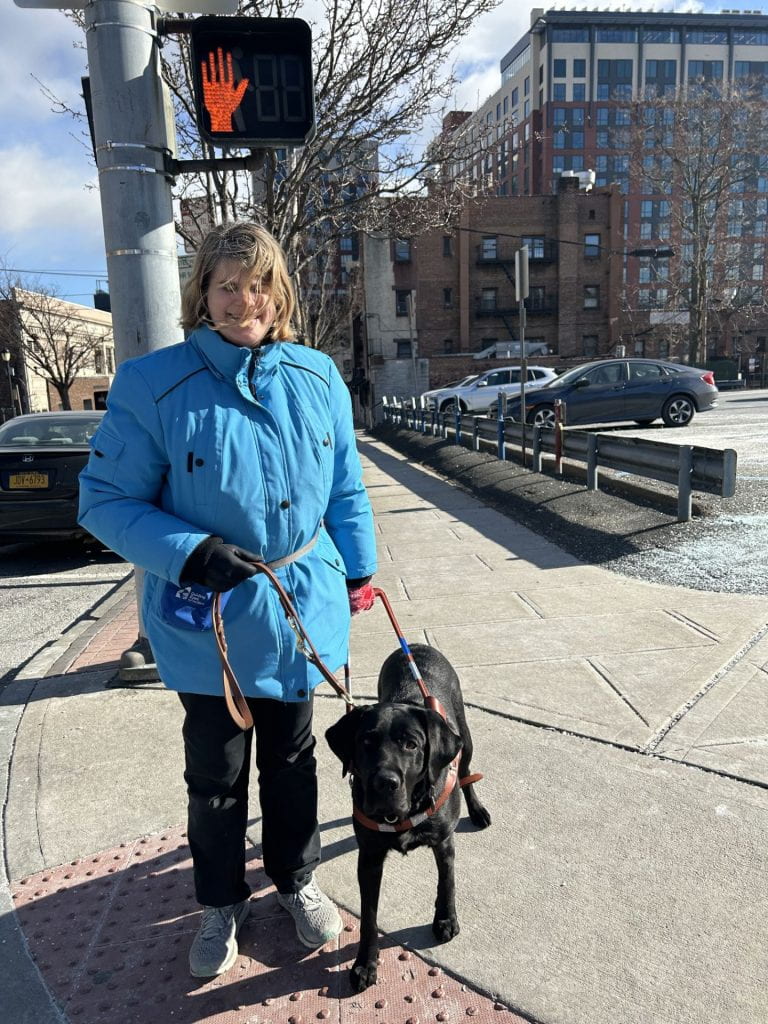
Kat DeNicola
she/her
Click or tap to read more about Kat DeNicola, Access Manager at the WWU Disability Access Center…
I received my Master’s degree in Counseling Education with a Rehabilitation specialty in 2014 from Portland State University. I have experience working in the vocational rehabilitation field, teaching assistive technology, and working with disabled college students which is what I currently do as an Access Manager at the WWU Disability Access Center.
One of the strongest messages disabled people receive from society is that we are broken. We are often viewed as less-than, as burdens. These judgments result in assumptions of what we can and cannot do, and thus what we are allowed and not allowed to do. As a totally blind woman, I believe the disabled body is something to be celebrated. We find ways to dance, to nurture, to create, to play sports, to make love, … And in our current climate where physical attacks on members of minority groups are increasing, we have the right to find ways to defend ourselves. The goal of my project is to provide general awareness and training to local self defense instructors on adapting their teaching techniques so that any disabled person can access training specific to their needs in an inclusive and accessible environment.

Erin Howard
they/them
Click or tap to read more about Erin Howard, a research scientist and engineer at the University of Washington…
Erin is a genderqueer and neuroqueer disabled scientist working for the Vera C. Rubin Observatory at the University of Washington. They graduated from Western Washington University in June 2022 with a Bachelor of Science in physics and math/computer science, with minors in astronomy and statistics. Their time at Western was spent advocating for disabled students and working with the College of Science and Engineering through the Student Ambassadors Program to help make classrooms more accommodating to everyone. In their free time, Erin works with the University of Washington’s Disabilities, Opportunities, Internetworking, and Technology (DO-IT) program as a panelist talking about the life of a disabled student and worker.
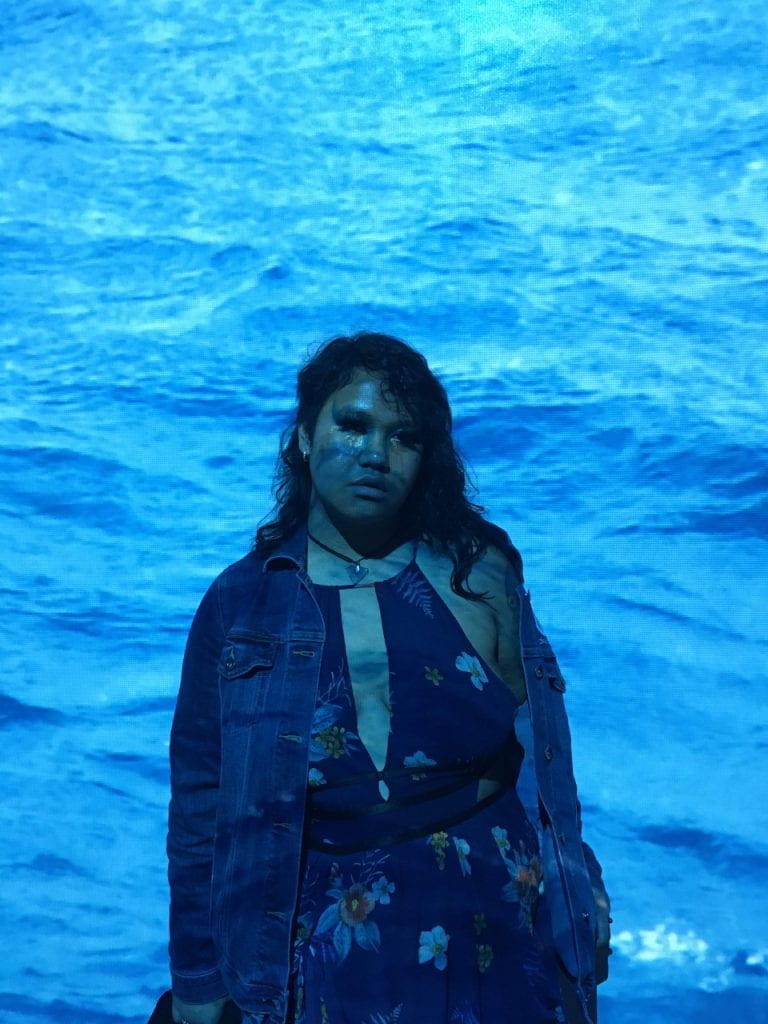
Jzy ||All Pronouns|| (Jazmine Joy De Leon Balila/Yeeles)
Click or tap to read more about Jzy, a WWU Alum…
Z devised their concentration in Declaration of Interdependence: Reclamation, Remediation, and Creation, minoring in Chemistry. They exist and operate in scalars–broadening perspectives and inviting specifications into moments and cases. She is of the ocean, space, and the elements. He devotes himself to timelessness and presence.
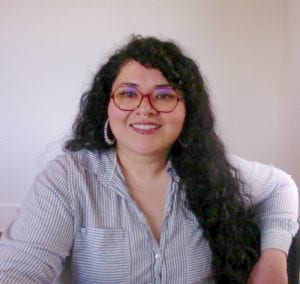
Melina Juárez Pérez
she/they
Click to read more about Melina Juárez Pérez, Assistant Professor of Political Science and Women, Gender, & Sexuality Studies
Melina Juárez Pérez is an Assistant Professor in Political Science and Women, Gender, and Sexuality Studies. They were born and raised in the Central Valley, California in a Mexican immigrant farmworker community. Their work focuses on the lives, health, and happiness of Latinx and BIPoC communities, particularly that of fat, disabled, queer, and women folk. Her time as a CDS Fellow will be spent on examining the ways disability functions within Latinidad and how it shapes relationships among Latinxs.
Contact us
To reach the ICDS Fellows Program team with questions, please address emails to both of the following email addresses: icds@wwu.edu and icds.fellows.program@wwu2.onmicrosoft.com.
